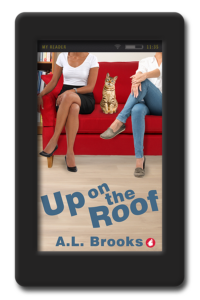Inspiration comes from all sorts of places for authors. I didn’t expect it to tap me on the shoulder one day while I was downing a drink or two at the local pub, but suddenly I found myself drawn into a conversation about British Indian culture.
I was out for an evening with my colleagues, sinking some beers after yet another long year-end process. The audit was over and we could relax.
I work with people of all colors and nationalities, and have for all the time I’ve lived in London, which is nearly thirty years now. I’ve often found myself in conversations discussing our upbringings and backgrounds, and that sharing of experiences has always interested me, even before the writing bug took hold, but more so now because of that.
Still risky for a British Indian coming out
I’d just had my second book published, Dark Horse, and two of my colleagues, both British Indian and both second generation (born in Britain to parents who had immigrated here), were asking me general questions about the story and where I got my ideas from.
I gave them a brief description of Sadie’s troubles with her father kicking her out, and how her lesbian identity had played a key role in his anger.
Rupinder laughed. “He sounds Indian!” she said, and Prachi chuckled alongside her, nodding.
“Really?” I asked. I told them I had kind of assumed that the stereotypical British Indian parents disapproving of their British-born children’s lifestyles had been left behind long ago.
“I wish we could say it has,” Rupinder said, “but let me just say, my cousin, who is gay, and all of us his age know it, is never going to come out to his parents.” She snorted. “Like, way too risky, you know?”
I asked what he would do instead.
She shrugged. “Get married to a woman, eventually.”
Pakistanis and Indians alike face being cast out
A month later I was at a party, and found myself next to Aziz, a British Pakistani. I remembered the conversation with Rupinder and Prachi, and asked Aziz if he would mind sharing his story. He was happy to talk, and his tale was almost as sad as the one about Rupinder’s cousin.
Aziz had decided to come out, to his father at least, despite knowing of other Pakistani men who had done so and immediately been ostracized by their families, cast out, and treated as if they were dead.
“It doesn’t matter if you’re Pakistani or Indian,” he said, and his sorrow was achingly obvious.
Aziz’s father sounded as if he was at least making some effort – while banning Aziz from telling his mother, telling Aziz it would “destroy her”, he hadn’t kicked Aziz out of the family.
“You are not supposed to be ‘one of them’. You bring shame on the entire family by being so,” he said.
Although, fortunately, I didn’t experience that same level of dread as Aziz in deciding to come out to my mum when I was twenty-three, I remember how nervous I was, and how I did fear what her reaction would be. That fear is universal, and doesn’t change no matter your background or where you live.
Are coming out fears about culture or religion?
On the Monday I had a cup of tea with Rupinder and told her about Aziz.
“Yeah, it’s the shame element, definitely. A good Indian or Pakistani boy or girl gets married and has children, and nothing else,” she said. “Even those of us women who have gone out to university and got jobs, it’s still hanging over us. You are not a complete person until you have fulfilled that role of marriage and babies.”
Was that wrapped up with religion, I wondered, or just culture?
“Culture,” she replied firmly. “It’s all about the history, of keeping your family line going.”
I asked how far some families would take that. Would they intervene, for example, if an Indian woman brought home a white or black man as her boyfriend?
Rupinder sucked in a breath and pondered that. “You know, I think that would be frowned on, but you might get away with it, especially if he was from a good family, good background.” She shook her head. “Yeah, it would definitely be seen as worse to be gay than bring home a white or black partner of the ‘right’ sex.”
I told Rupinder I was planning to write one of my characters in my next book as British Indian, with her being ostracized from the family as a backdrop.
Writing a novel with these stories at heart
Aziz’s story had stuck with me all the way home from the party and into the next day. The basic plotline for Up On The Roof had already been jotted down before meeting Aziz, but neither Lena nor Megan had any backstory yet. Somehow what Aziz had told me was really pulling at me. But would it seem wrong, somehow, for me, a white woman, to write that kind of character?
Rupinder shook her head and smiled. “I’m not offended that you want to write it. In fact, I think it’s great that that kind of thing is going to be told.”
I did some additional research on the internet, and spoke with Rupinder and Prachi a few times to check on certain elements. Finally, Lena had her backstory.
It really is amazing how inspiration strikes when you least expect it.
Copyright picture above: Depositphotos.com/william87
A.L. Brooks currently resides in London, although over the years she has lived in places as far afield as Aberdeen and Australia. She has just published Up on the Roof with Ylva.




0 Comment